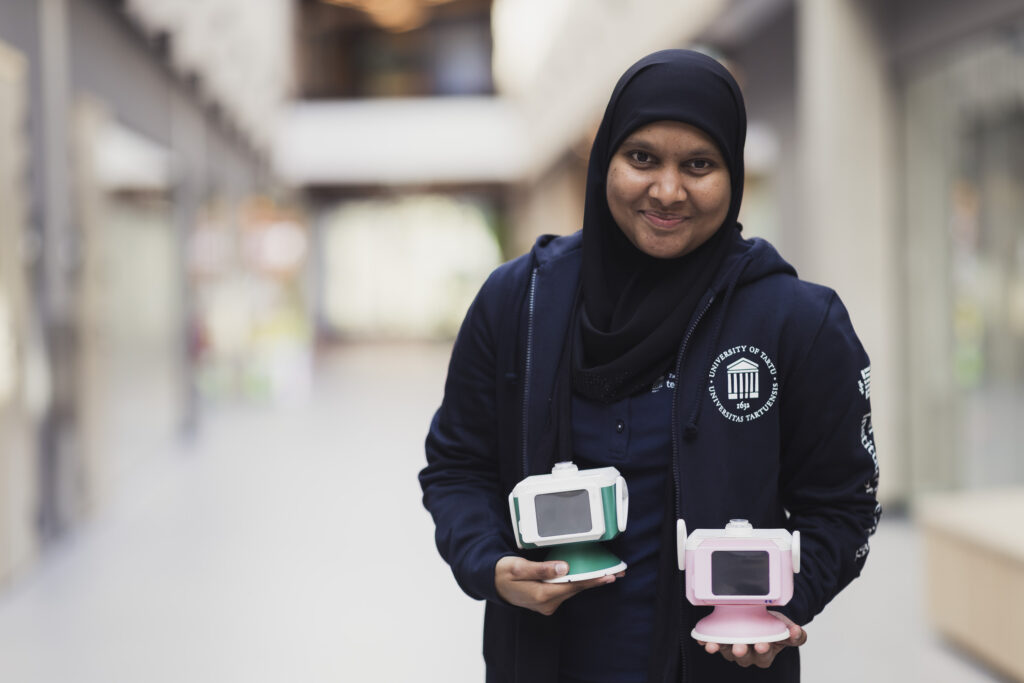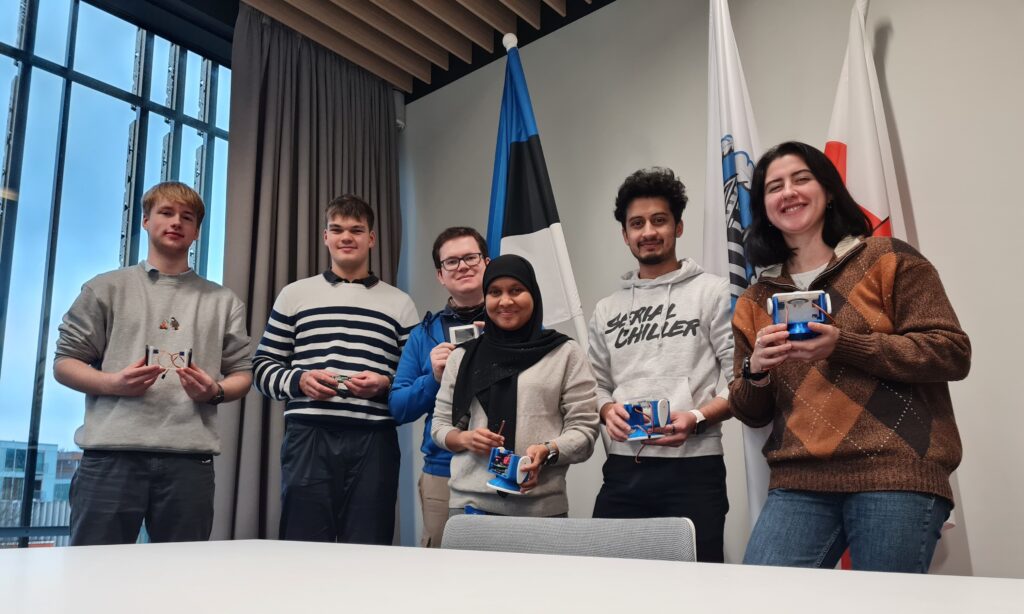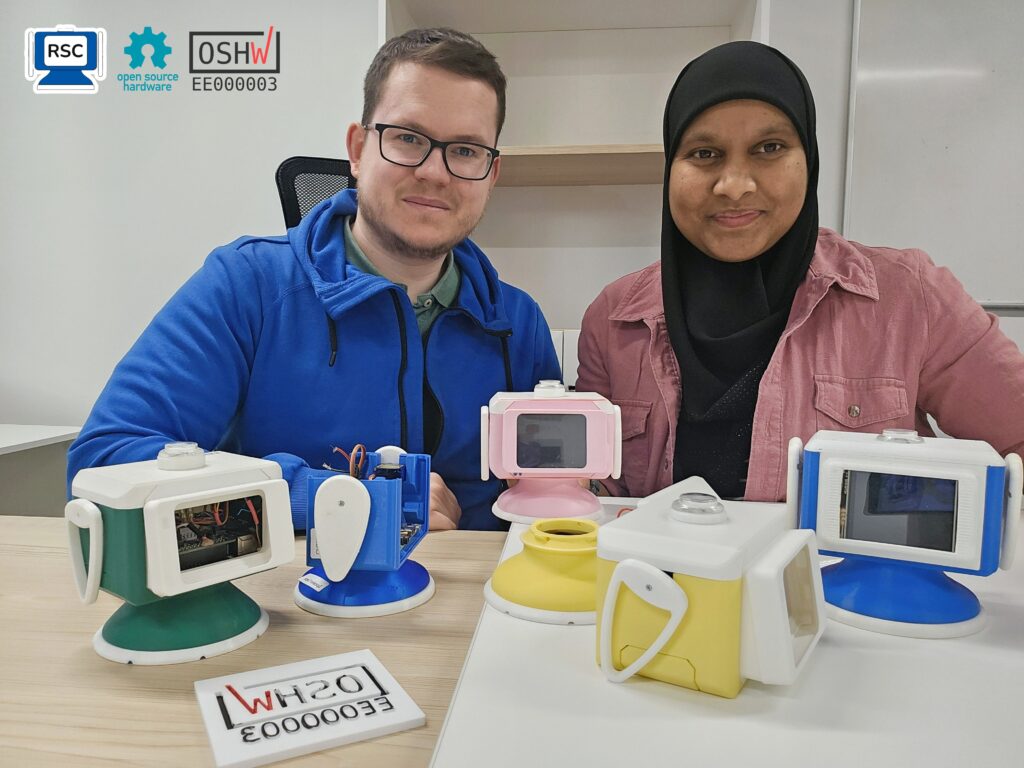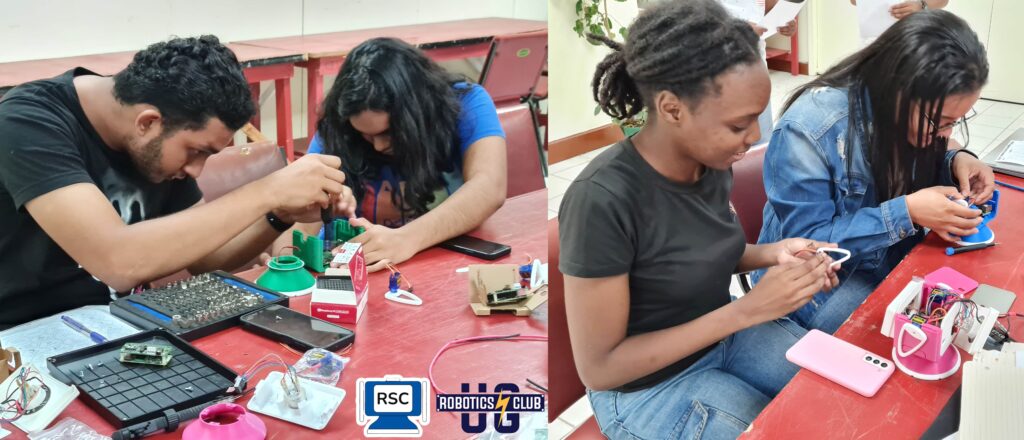Robot Study Companion: Accessible technology for inclusive learning
The pace of innovation requires skilled talent, but talent is not built solely on access to academic knowledge. It needs nurturing: a supportive environment and access to a peer network. In higher education, many students lack access to tools or services that support them both emotionally and academically, especially those in underserved and resource-limited environments. This reality became even more evident during the COVID-19 pandemic, when the lack of support and interaction felt daunting for students to stay motivated and organised in their studies.
Observing this missing link inspired Farnaz Baksh to develop the Robot Study Companion (RSC). After all, learning starts right at a student’s desk. The RSC is an open-source, affordable robot that aims to help students stay organised, motivated and ready to learn. The social impact of the Robot Study Companion is what brought Baksh to the nomination for the EIT Changemaker Award 2025.

Farnaz Baksh and two robotic study companion (RSC) prototypes. Photo credit: Silver Gutmann.
Robots for inclusive education
Research shows that supported students outperform struggling, unsupported and isolated peers. During the COVID-19 pandemic, students receiving personalised remote tutoring earned about 30% more credits. It also improved students’ study behaviours, motivation and contact with peers; and was especially beneficial for students who previously performed poorly (LASER study).
After compiling and reviewing available literature, Baksh carefully outlined a set of peer-reviewed requirements for what an effective study companion robot should be and provide. These include personalised guidance, encouraging engagement, gentle prompts that reinforce emotional resilience and features that help students maintain structured study routines. These research-based insights form the foundation of the Robot Study Companion (MDPI journal), which was developed to bridge the support gap for university students.
I’ve experienced firsthand how difficult it can be for students to access the support they need. My goal is to ensure the Robot Study Companion helps lower those barriers, and to achieve this, I lead an international team of students working together to develop the RSC, especially to meet their own needs.
Farnaz Baksh, Inventor of the Robot Study Companion (RSC)

Farnaz (centre) and her student team at the University of Tartu (Estonia, November 2024).
A Study Companion within arm’s reach
The market for education and social robots is growing. With advancements in robotics and humanoids, the high cost and proprietary nature of such options can be a challenge for students (Future Market Insights). This is why the Robot Study Companion combines a mix of off-the-shelf and custom 3D-printed parts, making it both affordable and easy to assemble.
Envisioned as an embodied artificial intelligence (AI) system, the software powering the robot is not limited to its inventor. The project’s open-source model invites students and researchers to improve, adapt and replicate the RSC across universities, homes and community spaces.
Moreover, students use the Robot Study Companion in their final-year theses projects, expanding its scope as a research and learning platform. Educators and mentors can use the RSC to introduce human-robot interaction and social robotics to new audiences.

Designing social robots requires expertise across multiple domains. Embracing the project’s collaborative spirit, Farnaz Baksh works closely with fellow robotics engineer Matevž Borjan Zorec. Together, they have developed the RSC since the prototype in 2023 and continue to mentor students involved in the project. Learn more at rsc.ee.
From mentor to inventor
Farnaz Baksh is no stranger to working with students. Originally from Guyana, she has long been dedicated to empowering young talent. Since 2016, she has established the University of Guyana Robotics Club, led the National Robotics Team, mentored over 70 girls through the Girls Code initiative and led the team in developing a robotics curriculum for students with special educational needs.
Her journey from mentor to inventor didn’t stop there, as she moved to Estonia to pursue a Master’s in Robotics and Computer Engineering. Now she is a Junior Research Fellow at the University of Tartu. She lectures and supervises university students in both Guyana and Estonia.
Baksh’s years of mentoring young learners have shaped her understanding of what students need most: personalised support and encouragement. This very solution became the reason she was nominated for the EIT Changemaker Award 2025.

Students from the University of Guyana Robotics Club (founded by Farnaz) building the RSC while learning about social robotics (Guyana, April 2025).
Next stop is EIT Awards
The EIT Awards bring together innovators, entrepreneurs and changemakers from the EIT Community. Baksh is currently enrolled in the EIT Manufacturing Doctoral School, developed for students to advance their entrepreneurial skills and turn ideas into new businesses.
However, she has been a member of the EIT Manufacturing community since 2022, when she took courses on digital skills and additive manufacturing on the skills.move platform. She also joined the STRADA mentorship programme in 2023, where she gained not only technical and entrepreneurial insights but also soft skills.
The EIT Manufacturing Doctoral School helped me expand my research and entrepreneurial skills at multiple venues across Europe. Now the EIT Awards offer the next step: a chance to share my work more widely and connect with others driving impactful innovation.
Farnaz Baksh, Inventor of the Robot Study Companion (RSC)
As she prepares to compete for the EIT Changemaker Award 2025, Baksh’s vision is to expand the reach and possibilities of the Robot Study Companion by partnering with universities, education policymakers and open hardware communities across the EIT ecosystem.
Show your support for Farnaz’s invention
Voting for the EIT Public Award 2025 is open until 25 November 2025, 11.30 CET.
Join the EIT Innovation Awards 2025
On 25 November in Budapest, EIT will bring together the EIT Community to celebrate the brightest innovators in Europe.

